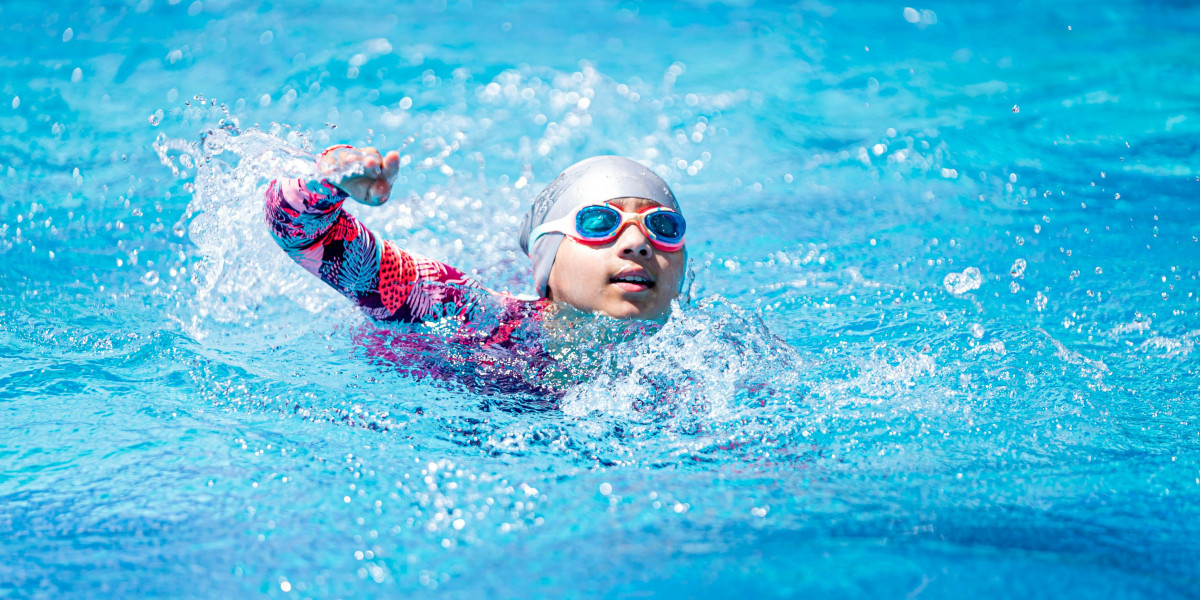Introduction
Swimming is not just a fun recreational activity—it is a life-saving skill that builds confidence, enhances physical fitness, and improves cognitive development. Parents often wonder when the best time is to start their child’s swimming journey. The answer? The earlier, the better. Enrolling your child in swimming lessons from a young age is not just beneficial; it's crucial. It can provide long-term benefits for their health, safety, and personal growth. In this article, we’ll explore why early kids' swimming lessons are essential and how they differ from adult swimming classes.
Why Early Swimming Lessons Matter
1. Safety First
One of the most important reasons to enroll children in swimming lessons early is to reduce the risk of drowning. According to the CDC, drowning is a leading cause of accidental death for children under the age of 14. By enrolling your child in kids swimming lessons, they will learn basic water survival skills, such as floating and treading water, which can save lives.
2. Builds Water Confidence
Children who begin swimming lessons at an early age tend to be more comfortable and confident in the water. This early exposure helps prevent fear and anxiety when swimming in pools, lakes, or the ocean.
3. Promotes Physical Development
Swimming strengthens a child’s muscles, enhances coordination, and improves cardiovascular health. Unlike some sports, swimming is low-impact, making it ideal for developing bodies.
4. Supports Cognitive and Emotional Growth
Studies show that kids' swimming lessons can positively impact brain development, concentration, and social skills. Group lessons encourage children to interact with peers, follow instructions, and develop patience.
Key Advantages of Kids Swimming Lessons
1. Lifelong Skill Development
By learning to swim early, children not only build a strong foundation for a skill they will use throughout their lives but also experience a sense of accomplishment that boosts their confidence and self-esteem, making parents feel proud and reassured.
2. Increased Independence
Early swimming fosters independence as children gain the ability to move freely and safely in the water, instilling a sense of freedom and empowerment that can inspire and motivate parents.
3. Better Academic Performance
Some studies suggest that children who participate in physical activities like swimming perform better academically due to improved focus and discipline.
4. Healthier Lifestyle Habits
Swimming is a full-body workout that encourages healthy habits. Kids who swim regularly are more likely to maintain an active lifestyle as they grow.
5. Improves Sleep Patterns
Regular swimming helps expend energy and can improve sleep quality in young children.
Swimming Lessons Toronto: What Makes It Unique?
1. Qualified Instructors
Swimming lessons in Toronto programs often feature certified instructors with expertise in early childhood swim education, ensuring a safe and supportive environment.
2. Indoor Facilities
Given Toronto’s long winters, most kids' swimming lessons in the city are held in heated indoor pools, allowing year-round access.
3. Variety of Programs
From parent-and-tot classes to advanced youth swim teams, Toronto offers diverse options catering to different ages and skill levels.
4. Emphasis on Water Safety
Toronto-based programs emphasize water safety alongside swim techniques, equipping children with skills essential for safe water recreation.
5. Community and Cultural Diversity
Toronto’s multicultural environment is reflected in its swimming programs, which often accommodate diverse backgrounds and languages.
Early Lessons vs. Adult Swimming Classes
1. Learning Curve
Due to their neuroplasticity, children generally learn new physical skills faster than adults. In contrast, adult swimming classes often involve a significant challenge: overcoming fear or hesitation. These classes are designed to help adults build confidence in the water, a process that can be as rewarding as it is difficult.
2. Physical Flexibility
Young swimmers benefit from increased flexibility and adaptability. Adults may face more physical limitations but can still greatly benefit from adult swimming classes.
3. Building vs. Rebuilding Confidence
Kids develop water confidence early, while adults may need to rebuild their comfort around water, especially if they’ve had limited exposure.
4. Teaching Techniques
Instructors use play-based methods with children, while adult swimming classes often focus on technique correction, endurance, and personal fitness goals.
5. Safety Focus for Adults
Adult classes place additional focus on overcoming fear of water and emergency safety protocols.
Benefits of Group Swimming Lessons for Kids
1. Social Interaction
Group lessons foster teamwork and communication among peers.
2. Motivation and Encouragement
Children feel motivated when they see peers mastering new skills, creating a fun and encouraging environment.
3. Structured Learning
Certified instructors follow a structured curriculum, progressively building on each child’s abilities.
4. Affordability
Group lessons are often more cost-effective than private sessions, making them accessible to more families.
5. Parental Involvement
Many programs for younger kids include parent participation, which strengthens parent-child bonding while learning water safety.
FAQs About Swimming Lessons
Q1: What is the best age for kids to start swimming lessons?
A: Most experts recommend starting between 6 months to 4 years, depending on the child’s comfort level and program availability.
Q2: How long does it take for a child to learn how to swim?
A: It varies based on age, frequency of lessons, and individual aptitude, but most children show significant progress within 6-12 months.
Q3: Are swimming lessons in Toronto programs different from those in other cities?
A: Toronto programs emphasize year-round indoor lessons and offer a variety of culturally inclusive and community-based options.
Q4: Can children move from kids' swimming lessons to competitive swimming?
A: Yes, many children who start early transition smoothly into competitive swim teams as they grow.
Q5: Do adult swimming classes help people with water phobia?
A: Absolutely. Many adult swimming classes focus on overcoming fear of water and building foundational swimming skills.
Q6: Are private swimming lessons better than group lessons?
A: It depends on the child's learning style. Group lessons promote social skills, while private lessons offer individualized attention.
Conclusion
Enrolling your child in swimming lessons early sets them up for a lifetime of benefits, from physical fitness and safety to emotional well-being and social development. Whether you’re searching for kids' swimming lessons or exploring swimming lessons in Toronto, early exposure to swimming provides an invaluable skill.
While adult swimming classes remain essential for those learning later in life, introducing children to water at a young age offers unmatched advantages. Enrolling children in professional swim programs today prioritizes water safety, fosters independence, and encourages a healthy, active lifestyle.




